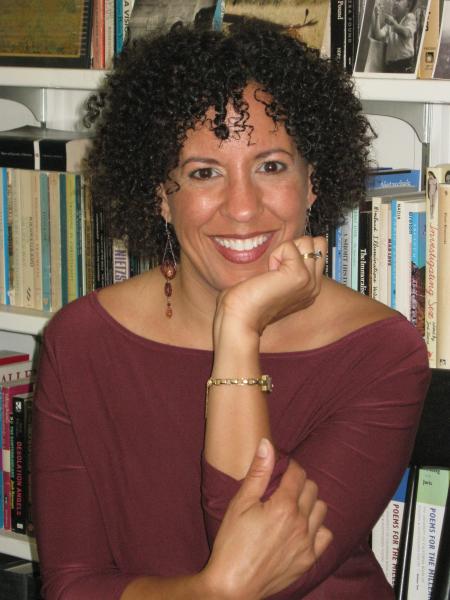EIHS Lecture: "Northern Slavery, the Art of Dissection, and a Doctor’s Fortune"
P. Gabrielle Foreman, University of Delaware
This talk examines the relationship between medical-knowledge generation and white uses of Black bodies by looking to long-standing, northern roots and routes of white professional reputation and capital production. By considering a slave-holding Connecticut family that spawned two centuries of doctors, and by focusing on Fortune, the man they claimed as property in life and in death, Professor Foreman examines the mortuary politics and anatomical entrepreneurialism at work when human remains are used as artifacts that serve to amass multi-generational professional standing. This talk asks how chattel remains, blanched of the violence of their genesis, inform the legacy of slavery and its afterlives.
P. Gabrielle Foreman, a poet’s daughter turned literary historian, is presently at work on a book entitled "The Art of DisMemory: Historicizing Slavery in Poetry, Performance and Material Culture" and an edited collection of artistic responses to David Drake, the enslaved South Carolina potter and poet, by painter Jonathan Green and poet Glenis Redmond. She attended Amherst College and the University of California, Berkeley before joining the faculty at the University of Delaware as the Ned B. Allen Professor of English and Professor of History and Black American Studies.
Free and open to the public.
This lecture is part of the Thursday Series of the Eisenberg Institute for Historical Studies. It is made possible by a generous contribution from Kenneth and Frances Aftel Eisenberg.
P. Gabrielle Foreman, a poet’s daughter turned literary historian, is presently at work on a book entitled "The Art of DisMemory: Historicizing Slavery in Poetry, Performance and Material Culture" and an edited collection of artistic responses to David Drake, the enslaved South Carolina potter and poet, by painter Jonathan Green and poet Glenis Redmond. She attended Amherst College and the University of California, Berkeley before joining the faculty at the University of Delaware as the Ned B. Allen Professor of English and Professor of History and Black American Studies.
Free and open to the public.
This lecture is part of the Thursday Series of the Eisenberg Institute for Historical Studies. It is made possible by a generous contribution from Kenneth and Frances Aftel Eisenberg.
| Building: | Tisch Hall |
|---|---|
| Event Type: | Lecture / Discussion |
| Tags: | African American, History |
| Source: | Happening @ Michigan from Eisenberg Institute for Historical Studies, Department of History |
The Thursday Series is the core of the institute's scholarly program, hosting distinguished guests who examine methodological, analytical, and theoretical issues in the field of history.
The Friday Series consists mostly of panel-style workshops highlighting U-M graduate students. On occasion, events may include lectures, seminars, or other programs presented by visiting scholars.
The insitute also hosts other historical programming, including lectures, film screenings, author appearances, and similar events aimed at a broader public audience.


